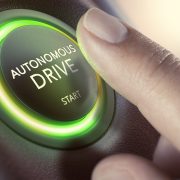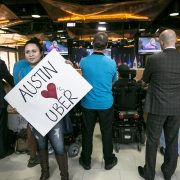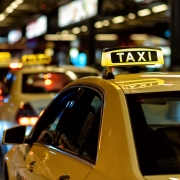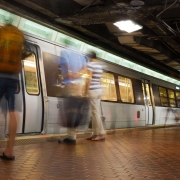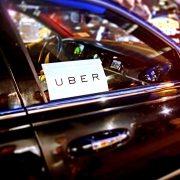Beginning January 1, 2020, all independent contractors in California, including Uber and Lyft drivers, will become statutory employees and receive the full range of benefits that come with being one.
Earlier this year, Gov. Gavin Newsom signed into law California Assembly Bill 5, which entitles most independent contractors and freelance workers in California to minimum wage, overtime pay, workers’ compensation, paid sick leave, and unemployment benefits, among other things. The law is a response to the California Supreme Court decision in Dynamex Operations West, Inc. v. Superior Court. The Dynamex decision issued strict guidelines for independent contractors and the businesses hiring them on what classifies a worker as an “employee.”
However, when you look at the available data, laws like AB 5 can actually bring more harm than good to freelance workers and rideshare drivers, and can raise consumer costs as well.
Do you remember the not-so-good old days of standing on street corners trying to get a cab? Those days are now a thing of the past, thanks to the advent of rideshare platforms. With Uber and Lyft, you can easily get a ride with just a few taps on your smartphone.
Even more important is the reduced cost being offered by Uber and Lyft. Compared to traditional taxi rides, you pay, on average, $5 to $10 less with rideshare platforms, according to the RideGuru forum. Rates vary across the United States based on geographic region.
What makes these lower rates possible is the fact that both Uber and Lyft present a very flexible and unique business model that allows individuals to offer rideshare services when they want to. They can drive as often or as sparingly as they like, and they can do it as independent contractors.
This setup and the flexibility and ease of participation the platform offers are what attract people to become Uber or Lyft drivers. A Pew study says 42% of people who earn money from Uber, Lyft, Airbnb, or other online platforms do it as a side gig to supplement their income.
However, hundreds of thousands of these “gig workers” will be impacted by AB 5 in a big way. Under AB 5, full employee status will be forced not only on rideshare drivers, but on truck drivers, independent health and psychology care workers, and local musicians as well.
As conventional employees, the flexibility that has allowed contractors and entrepreneurs to flourish in the so-called “gig economy” will be gone. Replacing it would be rigid statutory standards that the newly regarded employees will have to follow. The rideshare companies also face the rising cost of employing an individual driver. With the full implementation of AB 5 in 2020, drivers in California will end up having limited options.
AB 5 will also enable powerful labor unions to influence and coerce the millions of individuals it will deem as new employees. People have the right and freedom to join unions, but the government should not enact public policy that essentially increases the number of people who will potentially pay union dues.
While some of California’s Uber and Lyft drivers might support AB 5, they’re not being forced to drive for either rideshare company. It is their choice to become Uber or Lyft drivers, a flexibility considered one of the benefits of living in a free-market economy.
As far as Californians are concerned, the government seems to be always trying to protect them from some boogeyman, real or imagined. Lawmakers there also seem to care less about actually helping consumers and entrepreneurs and instead are congratulating themselves for dealing with a “problem” that doesn’t really exist in the first place.
No matter how good your intentions, what matters most is results. That’s the first law of public policy-making, and it looks like California’s legislators and Gov. Newsom have forgotten all about it.
And from the looks of things, AB 5 is poised to yield disastrous results.
About The Author
Timothy Snowball is an attorney at Pacific Legal Foundation. His practice spans PLF’s issue areas, with a particular focus on individual rights, including Americans’ Fourth Amendment right to be free from arbitrary warrantless searches in the comfort and safety of their homes. He regularly delivers speeches and presentations on the U.S. Constitution, individual liberty, and the rule of law.
